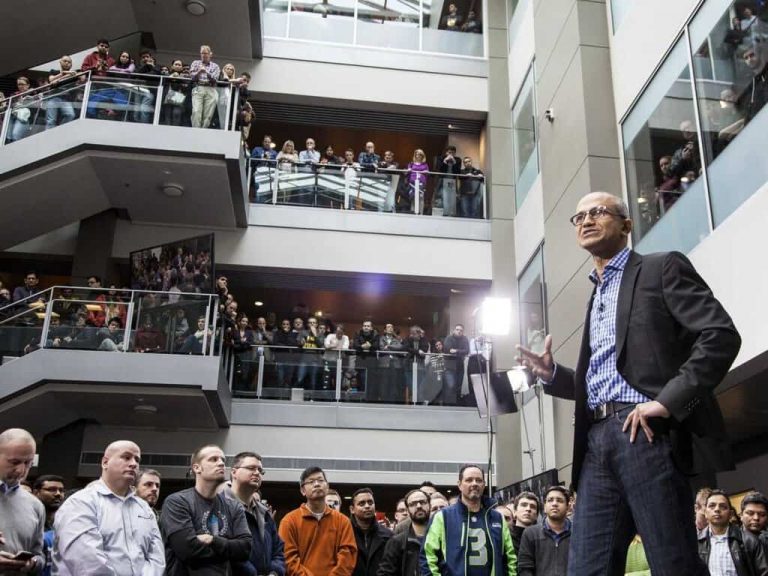In a bit of perceptive role reversal, a new study has place Microsoft at the top of its list of companies with the most innovative workforce in the tech sector.
In an interview with FastCompany, Samar Birwadker, Founder and CEO of Good&CO, further clarifies the company’s study which involved analysis of psychometric data obtained from personality quizzes taken by 4,364 tech employees. The questionnaires in the study focused on how each employee’s perception of arguably five of the most influential tech companies coming out of North America, specifically, Silicon Valley which included Google, Microsoft, IBM, Facebook and Apple.
To anyone paying close enough attention to industry trends, much of Good&CO’s study may seem self-explanatory. Birwadker believes that fostering a healthy work environment coupled without industry pressure is what leads to innovation and the study in question seems to highlight a similar line of reasoning.
The study points to Facebook’s early success has pigeonholed them into a culture of sustainability rather innovation.
They (Facebook) invented social networks, and there’s always been this layer of innovation, but with more pressure on revenue, and especially on mobile and advertisements, I think we are seeing a lot less risk-taking and adventurousness by their employees.”
Google was another company highlighted by the study, showing that its lofty hiring pitches result in disenfranchised employees later down the road. While co-opted movies such as The Internship and interviews with some high profile tech blogs paint Google as a company with quirky hiring practices, routinely catered events, sleep pods and the like, the real-life working environments around these places often fail to reflect the recruiting material.
You can’t have ten people in a boardroom deciding what the culture of the company is. It is defined by the people who already work there.”
Birwadker further clarifies his statement by noting that employees who look beyond the fancy recruiting techniques may end up leaving a falsely advertised situation, the result being an atmosphere less conducive to innovation.
By no means is Microsoft immune to any of the studies criticisms and in light of recent job cutting rounds, one would assume the company would ripe with fear and uncertainty leading more to a focus on job security rather than innovation, but the study shows otherwise.
The study data tell us that regarding adventurousness, Microsoft employees tend to be neck-and-neck with Apple’s, and much more adventurous than Google, Facebook, or IBM employees.”
Microsoft’s findings are credited in part due to the arrival of the company’s new CEO Satya Nadella and the transition its currently undertaking. Projects such as HoloLens, Continuum, and the Surface Book are arguably helping the company not only forge a new brand image but forcing Microsoft employees to out-innovate one another as they create hardware, software and services that build upon its existing efforts.
With the Good&CO study taking over two years to compile with analysis of 10 million responses from 2,500,000 users on questions about their thoughts and feelings regarding the big five tech companies, it appears that at least now, as a company, Microsoft is finally moving the needle in the right direction. Birwadker’s study show a company no longer viewed as a stagnant tech giant, but a Microsoft driven by competition and a necessity to innovate.


